Award-Winning Tutors
Who needs tutoring?
FEATURED BY
TUTORS FROM
- YaleUniversity
- PrincetonUniversity
- StanfordUniversity
- CornellUniversity
Find Expert Tutors Nationwide
Browse tutors by location, subject, or university

Certified Tutor
8+ years
Justin
I am an aspiring applied mathematician, with particular interest in image processing and climate science. I graduated in May 2017 from Washington University in St. Louis with a bachelor's in physics and mathematics, and am beginning a PhD program in September 2017 at the University of Chicago in Com...
Washington University in St. Louis
Bachelor's in Physics and Mathematics
University of Chicago
Doctor of Philosophy, Computational Mathematics
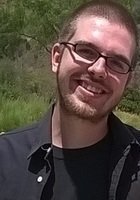
Certified Tutor
Justin
I am a graduate of the University of Chicago where I received my Bachelor of Arts in Philosophy. Currently, I am in the master's program at the University of New Mexico where I am continuing my education in philosophy. Ultimately, I hope to go on to earn a PhD in Philosophy so that I can continue en...
University of Chicago
Bachelor of Arts in Philosophy
University of New Mexico-Main Campus
Current Grad Student, Philosophy
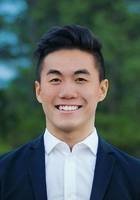
Certified Tutor
9+ years
Aaron
I'm not tutoring or buried in my textbooks, you will either find me rock climbing at the Triangle Rock Club, playing Ultimate Frisbee, working on my car, or enjoying the great outdoors (beaches, mountains, forests--you name it, I love it). On rainy weekends I enjoy tinkering with computers and old e...
The University of Texas at Dallas
Bachelors, Mechanical Engineering
Duke University
Current Grad Student, Mechanical Engineering
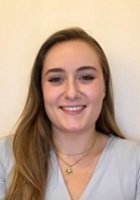
Certified Tutor
5+ years
Mimi
I am an interdisciplinary educator with an Ed.M. from the Harvard Graduate School of Education and a B.A. from Dartmouth College. My background is primarily in integrated arts learning and museum education and I specialize in visual arts, history and art history, and object-based learning. In all su...
Harvard University
Masters in Education, Education
Dartmouth College
B.A.

Certified Tutor
8+ years
Isabella
I am a graduate of MIT. I received my Bachelor of Science in Mathematics with minors in Management Science and Ancient and Medieval Studies. Since graduation, I have started my PhD at Georgia Tech in Operations Research. Throughout my career I have TA'd several math and computer science courses at t...
Massachusetts Institute of Technology
Bachelor of Science in Mathematics (minors in Management Science and Ancient and Medieval Studies)
Georgia Institute of Technology-Main Campus
Current Grad Student, Operations Research
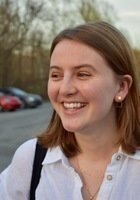
Certified Tutor
5+ years
Renee
I am passionate about education, learning, teaching, and specifically literatures and languages. I have experience as an ESL teacher for young children and teens, as well as experience working as a Writing Consultant at my undergraduate institution. I also spent all four years of my undergraduate ca...
Colgate University
Bachelor in Arts, Spanish
Princeton University
Doctor of Philosophy, Spanish and Iberian Studies

Certified Tutor
9+ years
Sherry
I am a graduate of the University of Chicago, with a bachelor's degree in psychology and linguistics. Currently, I am pursuing a master's degree in speech-language pathology at Teachers College, Columbia University. In the past, I have worked as a teacher's aide in a public school classroom, a mento...
University of Chicago
Bachelor's degree in psychology and linguistics
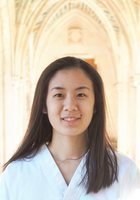
Certified Tutor
4+ years
Florence
I am a rising senior at Duke University. I major in Computer Science and am also getting a minor in Physics. I have had experience tutoring/teaching as a teaching assistant for three classes: Intro to Databases, Electricity and Magnetism (for engineers), and Computer Network Architecture. I have had...
Duke University
Bachelor of Science, Computer Science

Certified Tutor
7+ years
Brittney
I'm a graduate of Princeton University (2009), with a degree in Comparative Literature. I'll be receiving my masters degree in English from Grand Valley State University this fall and I'm looking forward to working with students like you! I've been teaching and tutoring students since 2008 and I spe...
Grand Valley State University
Master of Arts, English
Princeton University
B.A. in Comparative Literature
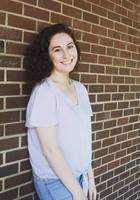
Certified Tutor
4+ years
Bethany
I am a graduate of the University of California, Berkeley and Duke University. I received my Bachelor's degree in History and my Master's degree in Religious Studies. Since graduation I have tutored students in American History and Biblical Hebrew, which were exceedingly rewarding experiences. I am ...
Duke University
Master of Arts, Religious Studies
University of California-Berkeley
Bachelor in Arts, History
Top States
Find expert tutors in your state
Meet Our Expert Tutors
Connect with highly-rated educators ready to help you succeed.
Shelley
Calculus Tutor • +11 Subjects
I am a doctoral candidate in Clinical Psychology at Duke University. My job requires excellent mathematics, analytic, and writing skills, which are also my favorite subjects to teach. I have experience teaching kids in elementary, middle, and high school, as well as college-aged students. My particular expertise is in managing attention and assisting with executive functioning (e.g., time management and planning).
Daniel
Calculus Tutor • +32 Subjects
I am an experienced tutor in a variety of subjects, ranging from the elementary to the college and medical school levels. I am a graduate of Cornell University with a wide range of educational experiences. By combining this knowledge with hard work, I motivate and empower students to learn. I can work with your child on reading, writing, math and SAT prep. I also have the unique ability to work with him or her on social skills and organizational skills. I will work with you and your child to develop the best plan of action. Thank you for your consideration. Hobbies: reading, writing, art, books, music
Shayan
Calculus Tutor • +29 Subjects
I'm a pre-health student at the University of Pennsylvania, and have an extensive background in the sciences. I can also rock the SATs and MCAT, so I've got that going for me. I love learning with students and trying to make the tedious work of learning as fun as possible. I think and teach in examples and make abstract concepts easily understandable. I also love sports, adventures, travelling!
Emily
Pre-Algebra Tutor • +38 Subjects
I am a Yale graduate with over 8 years experience tutoring students from a variety of backgrounds. I recently graduated from the Yale School of Public Health with a MPH concentrating in Epidemiology and Global Health. I also received my B.S. from Yale with a double major in Molecular, Cellular, and Developmental Biology and French. I have experience both leading group classes and working with students one on one. I will respond to a student's strengths, weaknesses, and learning style in order to help them succeed and make the most of our time together. I earned a perfect score of 36 on the ACT, 2280 on the SAT, and qualified as a National Merit Scholar on the PSAT. I look forward to working with you! Hobbies: writing, art, books, music, dancing, baking, reading
Keith
Calculus Tutor • +36 Subjects
I am a recent graduate of Williams College, where I studied political science with sidelines in history and English. Next fall, I am headed to Ithaca to study at Cornell Law School. I have experience tutoring in all subjects for high school standardized tests and in writing and history at higher levels, and am excited to pass on the benefits of my study as a tutor for the LSAT. I look forward to working with you!
Yu
Calculus Tutor • +25 Subjects
I am a strong believer that anyone can learn anything! I attended the University of Pennsylvania as an undergraduate and recently finished my Master's in Education at the Harvard Graduate School of Education. As a tutor, I create a space where my learners can feel empowered and safe to take on the sometimes difficult, yet often fulfilling and fun, challenge of learning new things. I practice a growth mindset philosophy, and I often say that it is okay to be wrong, it just means you haven't learned the material... yet. With patience and effective pedagogy, I strive to give my students confidence that they can learn anything they set their mind to. I take my students' desires, motivations, goals, and interests seriously. Fun fact: I am an international student from Malaysia! Hobbies: reading, cooking, music, art, books, dancing, writing
Brian
AP Statistics Tutor • +115 Subjects
I'm a recent graduate of the California Institute of Technology in Economics and Computer Science. I was also accepted at Harvard, Princeton, MIT, and Stanford. I have a broad range of interests spanning science, math, engineering, social science, the humanities, the arts, and athletics (I also played on the Caltech basketball team). My background allows me to tutor general college prep, especially the SAT, ACT and the GRE. I love to teach analytical thinking, ranging from advanced Math and Physics to strategies for understanding literature and developing arguments.
Jennifer
Pre-Algebra Tutor • +31 Subjects
I'm currently studying Psychology and Business Economics at the University of Chicago. I mostly tutor students in math and standardized test prep, as well as edit essays. During my time at school, I have been tutoring two students long-term, as well as conducting online one-time session with students since online classes started. Beyond making sure my students understand the material covered during session, I want to help foster a love for learning.
Sash
Calculus Tutor • +18 Subjects
I am a graduate of Princeton University. I received my Bachelor of Arts in Comparative Literature with minors Theater and Creative Writing (and won both Princeton's Creative Writing Award and its Theater Award). I was fortunate enough to have been selected by Joyce Carol Oates as one of her two advisees. Under her guidance, I wrote my first novel. Since graduation, I have been pursuing a career as a freelance theater director and writer. I began tutoring because I am passionate about education and its profound ability to change and improve lives, and I love working with children. In my own experience, having a great tutor had an undeniable impact on my learning, my performance, and my future, and I want to pass on those same opportunities. I tutor children anywhere from elementary school to high school age and also have extensive experience teaching acting and writing. Outside of tutoring, I'm busy in the New York theater scene working regularly on Broadway and Off as well as developing my own work. In my spare time, I love photography, reading, seeing films, and traveling.
Alexandra
Calculus Tutor • +23 Subjects
I'm a recent New York transplant from the wilds of suburban New Jersey. I moved to the city this summer after finishing a Master's Degree in Near Eastern Studies at Princeton, where I also did volunteer work as an English composition teacher. I started teaching and tutoring eight years ago as an assistant Arabic teacher at a language camp, and I've been working in education and/or academia ever since! I especially love teaching writing, reading skills, and foreign languages: I'm a believer in the power of clear and thoughtful communication. In my spare time, I enjoy reading, music, the Middle East, current events, great coffee, and city life.
Browse by Subject Category
Top 20 Subjects
Top 20 Universities
Find The Best Tutors
Connect with expert tutors tailored to your learning needs






